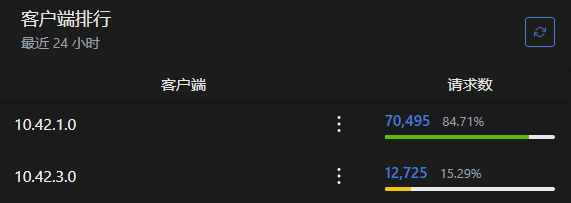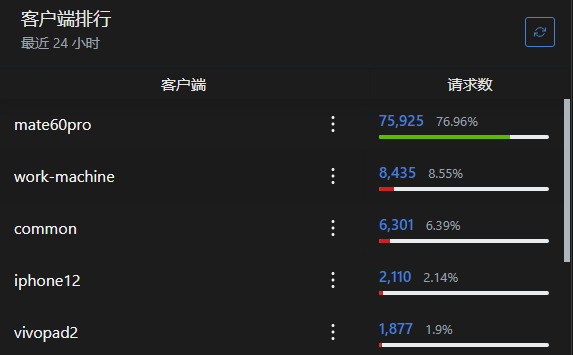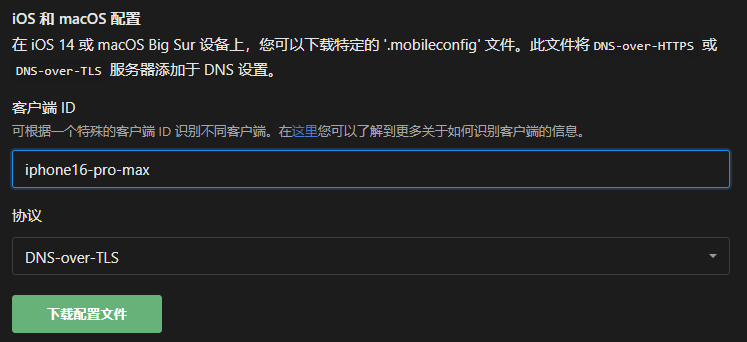Using Custom Device Names
Assign custom identifiers to devices: distinguish endpoints via extended hostnames/URL paths, view “Client Rankings” and logs precisely, and simplify rule & schedule management.
If you use the service’s listening address directly, such as:
tls://xxxxxxxx.adguardprivate.comhttps://xxxxxxxx.adguardprivate.com/dns-query
the IP shown in the dashboard under Client Rankings will be the cluster IP of the load balancer, which is meaningless to you and prevents differentiating individual devices.

You can identify different devices by extending the hostname or adding a URL path.

- DoT uses the extended-hostname method, e.g.
tls://device1.xxxxxxxx.adguardprivate.com - DoH uses the additional-path method, e.g.
https://xxxxxxxx.adguardprivate.com/dns-query/device2
Notes:
- On Android, you do not need the protocol prefix
tls://; simply enterdevice1.xxxxxxxx.adguardprivate.com - On Apple devices, follow the setup guide: enter the client ID, download the configuration profile, and you’re done—no manual entry required.

All devices on a personal service share the service’s query limit of 30 requests per second.